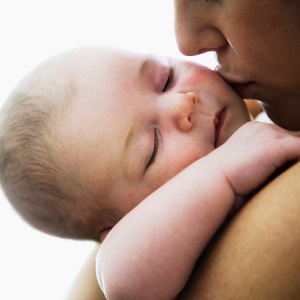 In addition to adapting to the brand new experience of parenting, many new parents may also be managing preexisting mental health issues, like depression or bipolar. Others may experience postpartum depression (PPD) after the birth of a child. The American Psychological Association states that postpartum depression affects 9–16% of postpartum women, and women who experienced PPD after the birth of their first child are even more likely to experience PPD after a second pregnancy.
In addition to adapting to the brand new experience of parenting, many new parents may also be managing preexisting mental health issues, like depression or bipolar. Others may experience postpartum depression (PPD) after the birth of a child. The American Psychological Association states that postpartum depression affects 9–16% of postpartum women, and women who experienced PPD after the birth of their first child are even more likely to experience PPD after a second pregnancy.
Online resources like GoodTherapy.org can be valuable in helping you understand issues like postpartum depression—you can find a selection of blog articles related to PPD on the GoodTherapy.org Blog—but finding others who can relate is also essential. That’s why we appreciate the many wonderful blogs by parents who have experience with postpartum or general depression. It’s comforting to find people who have documented their stories and shared their own inspiration for coping with mental health issues.
Below are some of our favorite blogs by and for parents who are experiencing or have experienced PPD or depression.
Postpartum Progress
With a team of over 15 writers, Postpartum Progress discusses the experience of motherhood—for parents-to-be, those who have decades of parenting behind them, and everyone in between. Because so many authors are contributing, you can follow the stories of mothers who are in all stages of PPD and depression. Click on “Find Moms Like You” under the Get Hope tab to explore personal stories you can relate to and resources for moving forward.
All Work and No Play Makes Mommy Go Something Something
A wife and mother who has experienced PPD and been diagnosed with bipolar II, Kimberly has many published pieces to her name in addition to her popular blog. In her bio, she writes, “Together, my boys have guided me through the darkest times of my life and held onto my hope when I lost it. Their love saves me every single day.” The link above takes you to her posts specifically addressing PPD and recovery.
Beautiful Courageous You
Lauralee writes that her faith has been of the utmost importance to her success in dealing with mental health issues while raising her five children. “Most of what I write about is a real and raw journey through depression, anxiety, and grief, not to bring you down but to bring you UP and fill your heart to brimming over with Hope.” Many people search for a spiritual approach to overcoming hardships in life; if you’re looking for inspiration from a mother with a Christian perspective, Beautiful Courageous You is the account of a woman who has learned to embrace change and rejoice in life’s trials.
Ivy’s PPD Blog
After a failed pregnancy and an unsuccessful cycle of in vitro fertilization, Ivy gave birth to her daughter in December 2004 and experienced PPD six weeks later. Though she considers her experience with PPD over, she has continued to be an advocate for education about maternal mental health issues, perinatal mood issues, and infertility. Ivy’s blog is one of our favorites because of her dedication to reducing stigma about mental health issues that women and mothers face. She also shares insightful posts about bullying and the importance of staying wary of social media—both for kids and adults.
Farewell Stranger
Robin Farr named her blog not for the Supertramp song “Goodbye Stranger”—OK, maybe a little bit for that—but because, “In telling this story, I’m saying goodbye to a version of myself that I didn’t know and didn’t understand.” Robin has presented a TEDx talk, contributed to Huffington Post, and written for Postpartum Progress about her ongoing experience with depression and the recurrence of what she calls “blips”—those times that might make one hyperaware of mental health issues. Farewell Stranger has formed an online community around Robin, her life with her two sons, and maternal depression.
PPD to Joy
The author of PPD to Joy, Yael, had a traumatic introduction to postpartum depression: her mother committed suicide when Yael was 6. When Yael found herself having similar thoughts and motives after the births of her own children, she said the memory of her mother’s death “ignited a spark” under her. She began seeking help and finding strength through support networks and professionals. Years later, she continues her blog, hosts support groups in Ithaca, New York, and helps eliminate stigma and confusion about PPD.
While there tends to be an abundance of resources available for women with postpartum depression, the help for their partners is not as plentiful. Spouses should not only learn how to support a partner with depression; they should also be prepared for dealing with depression issues themselves. Studies have shown that fathers, too, may experience postpartum depression. We are still looking for blogs by fathers with PPD; please email inquiries@goodtherapy.org with suggestions.
Are there other blogs about depression and PPD that you read? Please let us know! Have your own blog that covers these issues? We want to find it! Leave your suggestions in the comments, so we can include them in future lists like this.




Please fill out all required fields to submit your message.
Invalid Email Address.
Please confirm that you are human.
Leave a Comment
By commenting you acknowledge acceptance of GoodTherapy.org's Terms and Conditions of Use.